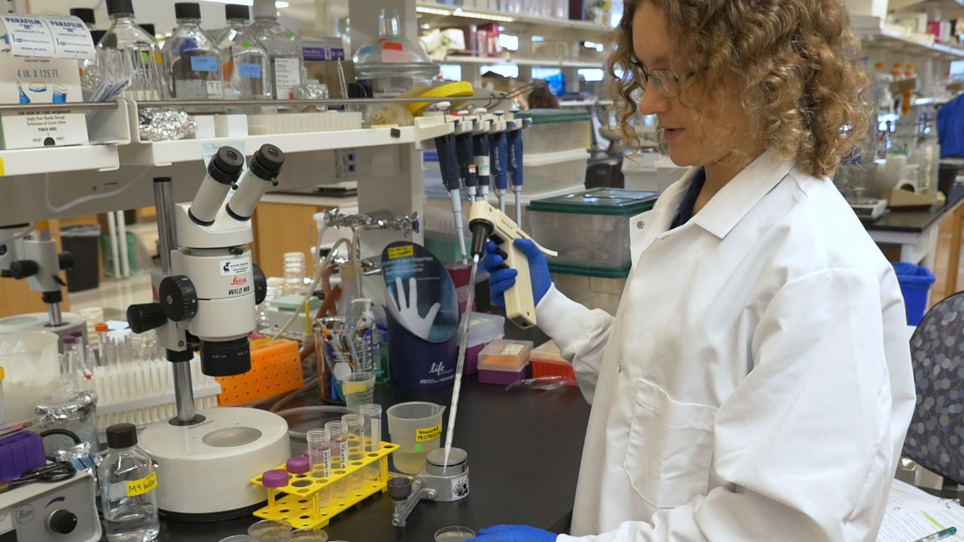Nematode Slide Preparation: A Method to Mount Animals on an Agar Pad
Transcript
– First, place a microscope slide between two other slides with tape. These provide support and spacers for the agarose pad preparation. Next, place a drop of melted agarose onto the slide. Immediately press down on it with another slide.
After the agarose solidifies, carefully separate the slides so that the agarose remains on one slide. Always use freshly made pads as dried out pads can dehydrate the animals. Ensure there are no cracks or bubbles, which can disrupt pad integrity.
Next, add a drop of anesthetic to the pad center and transfer 10 to 15 animals to it, bringing as little bacteria with them as possible. Excess bacteria could interfere with imaging. If the anesthetic solution dries out, add a second drop onto the animals.
Gently place a coverslip over the pad. Avoid forming bubbles or placing too much pressure on it to prevent damaging the animals. Finally, label the slide, which is ready for imaging.
– Start by preparing slides for imaging. Place a drop of melted agarose onto a microscope slide and immediately press down the droplet with another microscope slide gently flattening the agarose Need the agarose to dry for one minute.
Then, carefully separate the two slides and leave the solidified pad on one of the slides. Place the slide on the microscope stage and add a 5- to 10-microliter drop of anesthetic to the center of the agras pad.
Use a heat sterilized pick to quickly transfer 10 to 15 animals from the stock plate to the anesthetic droplet before the solution dries out. Then, apply a coverslip by positioning it just above the agarose pad and gently dropping it down.



